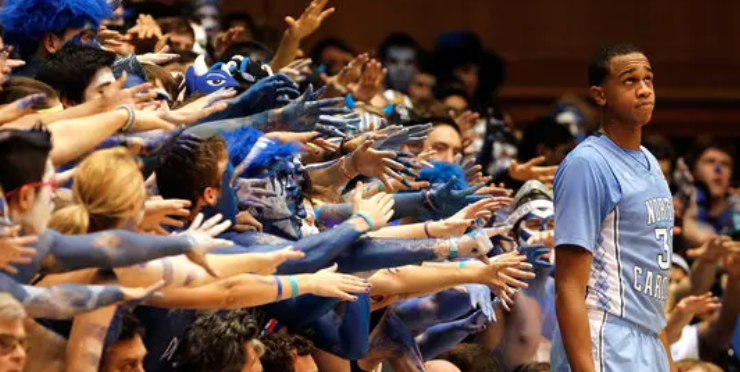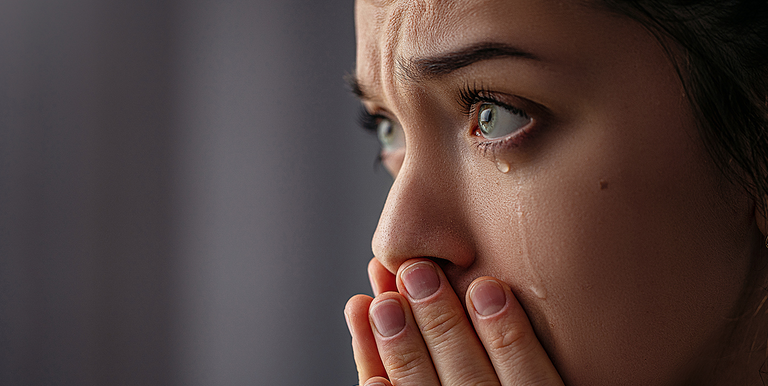Written by :
Published on :
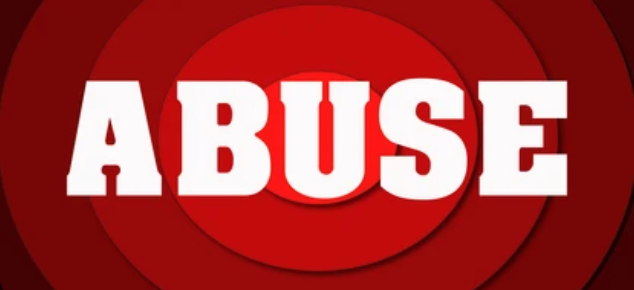
Key takeaways: |
One in three star athletes receive abuse, threats by bettors with "an interest in the game", according to the NCAA.
More than 540 men's and women's college basketball players received similar abuse, including death threats.
Shockingly, the NCAA said the data showed women's basketball players received approximately three times more overall threats than men's players and that 15-25% of abuse directed at players, coaches and officials who are involved in the most popular college sports was related to betting.
"Individuals who harass athletes, amateur or professional, over a sports bet should not be tolerated," Joe Maloney, senior vice president of strategic communications for the American Gaming Association, told ESPN in a statement. "Importantly, the legal sports wagering market is providing the transparency critical to discuss solutions to reducing player harassment for the first time -- an opportunity illegal market actors do not provide. We look forward to continuing our dialogue with the NCAA, professional leagues, and other stakeholders on the universal shared goal of reducing athlete harassment."
|
Stopping College Athlete AbuseThe NCAA has launched several initiatives to address harassment, including engaging Signify Group. Its Threat Matrix artificial intelligence service supports the Association in studying and responding to online abuse and threats directed at NCAA championship participants, including student-athletes, coaches, officials and committee members for the 2023-24 championship season. This unique initiative is intended to further promote the mental health and well-being of the college sports community through data collection and analytics. |
These findings are strange considering the number of betting opportunities with NCAA women's basketball were limited with few, if any, offshore sportsbooks offering player prop bets outside of superstar Caitlin Clark. Neither BetOnline or BetUS offered college player props on women's basketball during the 2023-24 season (with the exception of the aforementioned Clark).
Gambling911.com found that none of the top tier pay per head software promoting NCAA basketball specifically mentions women's games.
All of this comes despite the increased popularity of women's college basketball in recent years, helped along by Clark.
The NCAA, meanwhile, is pressuring state regulated sportsbooks to stop offering college player prop bets. Some states like Ohio, Vermont, Louisiana and Maryland are already on board. Others, including New Jersey and the college sports mecca of North Carolina are expected to follow suit.

Sportsbook owner Joe Brennan, Jr. (pictured above) blames social media for the abuse. He recently sat down with ESPN's David Payne.
"This is a social media problem first and foremost," said Brennan, who runs Prime Sports out of Ohio and New Jersey. "The NCAA demanding the banning of college player props is a distraction from the root causes and likely solutions. Abusive speech towards teams and players is a sad reality in competitive sports. ... It's unfortunate that sports betting has now also become another subject in this, but it certainly didn't start it."
After LSU’s loss to Iowa early last month, an emotional Angel Reese said she received vile threats since winning the national title in 2023. Days later, Iowa’s Gabbie Marshall deleted her social media altogether due to threats hurled her way after she drew a game-clinching foul against UConn in the Final Four.
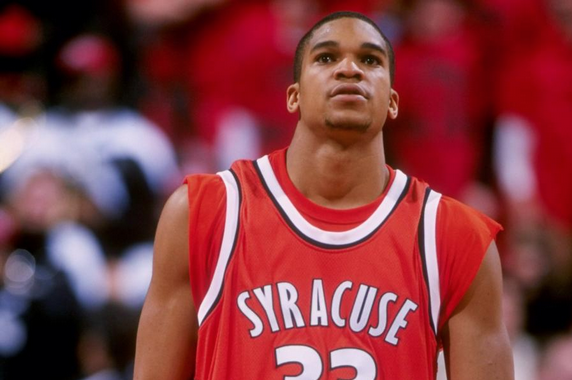
"I was heckled during my time as a college player in the late 1990s," former Syracuse Orange player Etan Thomas (pictured above) details in The Guardian. "But young athletes today must endure an ocean of bile from all areas of the internet."
Thomas also played in the NBA from 2000 through 2011.
"I played for Syracuse University from 1996 through 2000 and it was a whole different world. Sure, fans were often unhappy after a tough loss, and my teammates shared stories of angry fans heckling them at the mall or parties. And Black players, from Reese to members of Michigan’s Fab Five in the early 1990s have always received a disproportionate share of abuse from mainstream America, which sees them as too proud, too confident and too “uppity”. But the difference is, with the rise of social media, the abuse, hatred and threats have been magnified a thousand times since our college days.
"Social media has given the fans access to athletes; too much access," Thomas added. "In the past, overzealous fans would have to write a letter and mail it to a university to let out their anger: the effort it took may even have given them time to calm down and question whether what they were doing was wise. But now they can unleash their anger, frustration, disappointment, hatred, racism, sexism and any other bile feel directly to athletes with a simple tap of a button on their cell phone in seconds.
"Add in sports gambling – which is now legal in most US states – to the mix and the abuse only gets worse as bettors take their frustration out on players when they lose money."
It's a mental health nightmare, Saquandra Heath (pictured below), Associate Director of External Communications, expressed this week through a piece she authored on the NCAA's website.
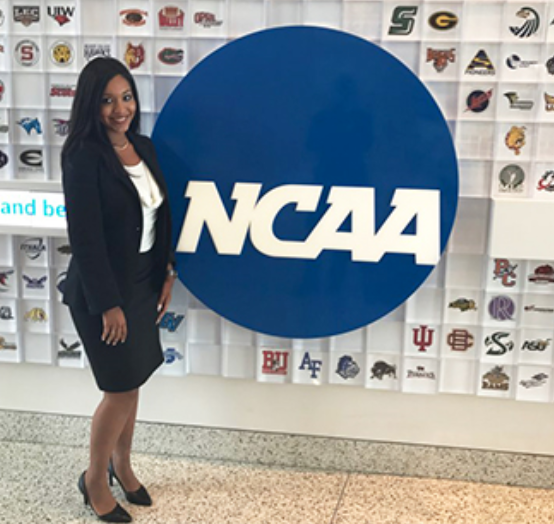
"Harassment related to sports betting can cause serious harm to student-athlete mental health and well-being," Heath says, noting that the NCAA is "flagging abusive social media content."
It all comes back to those player prop bets, Heath insists.
"These types of bets target the individual for harassment and are more easily manipulated, threatening competition integrity. That's why the NCAA is advocating for elimination of player-specific prop bets in collegiate competitions.
|
|
New Jersey is set to become the next state to ban college player propositions, unless another state like North Carolina beats them to the punch.
Senator Kristin Corrado (R-40) introduced legislation last month that would prohibit sports wagering licensees in New Jersey from offering these types of wagers, echoing the NCAA talking points.
“Proposition bets have led to a rise in the harassment of student-athletes and have threatened the integrity of college sports,” said Corrado. “I have heard about many individuals who have been the victim of online harassment because they didn’t perform to the expectation of a bettor who made a side wager. This legislation will ban player-specific prop betting in New Jersey, which will help curb that appalling behavior, and make college athletic events safer for all participants.”
States like New Jersey already prohibit betting on in-state schools like Rutgers and Seton Hall. Individuals from New Jersey cannot place bets on games that feature these teams either.
Inevitably we could see some states follow a more draconian path similar to what we see in Oregon: No betting on college sports period, at least not via their mobile devices. Retail casinos in the state do offer betting on Ducks and Beavers games.
That's not likely any time soon. But it is hard to see how prohibiting player props on a sport like women's basketball will stop the harassment when these types of bets were never offered in the first place, at least not offshore. Gambling911.com did not come across these types of bets in the state regulated markets either. Again, those that were offered were only on a handful of big name stars like Clark.
Once these types of bets are eliminated and the harassment continues - which it will - the NCAA needs to reach for something else to blame. Who knows where that will lead.
At least two states - West Virginia and Ohio - offer a more attractive option.
Ban fans who harass athletes from betting on the apps period.
Legislative action was finalized on March 8 in West Virginia when HB 4700 passed in the Senate just in time for the House of Delegates to pass the Senate’s amendment before the session ended the following day. Governor Jim Justice signed the bill into law.
Ohio led the way last summer with a similar bill. Gov. Mike DeWine signed the Ohio state budget bill last July, which includes language empowering gaming regulators to exclude anyone who threatens violence or harm against sports participants, including athletes, referees, coaches, owners and governing body officials, "where the threat is related to sports gaming" from using the state's licensed sportsbooks.

|



